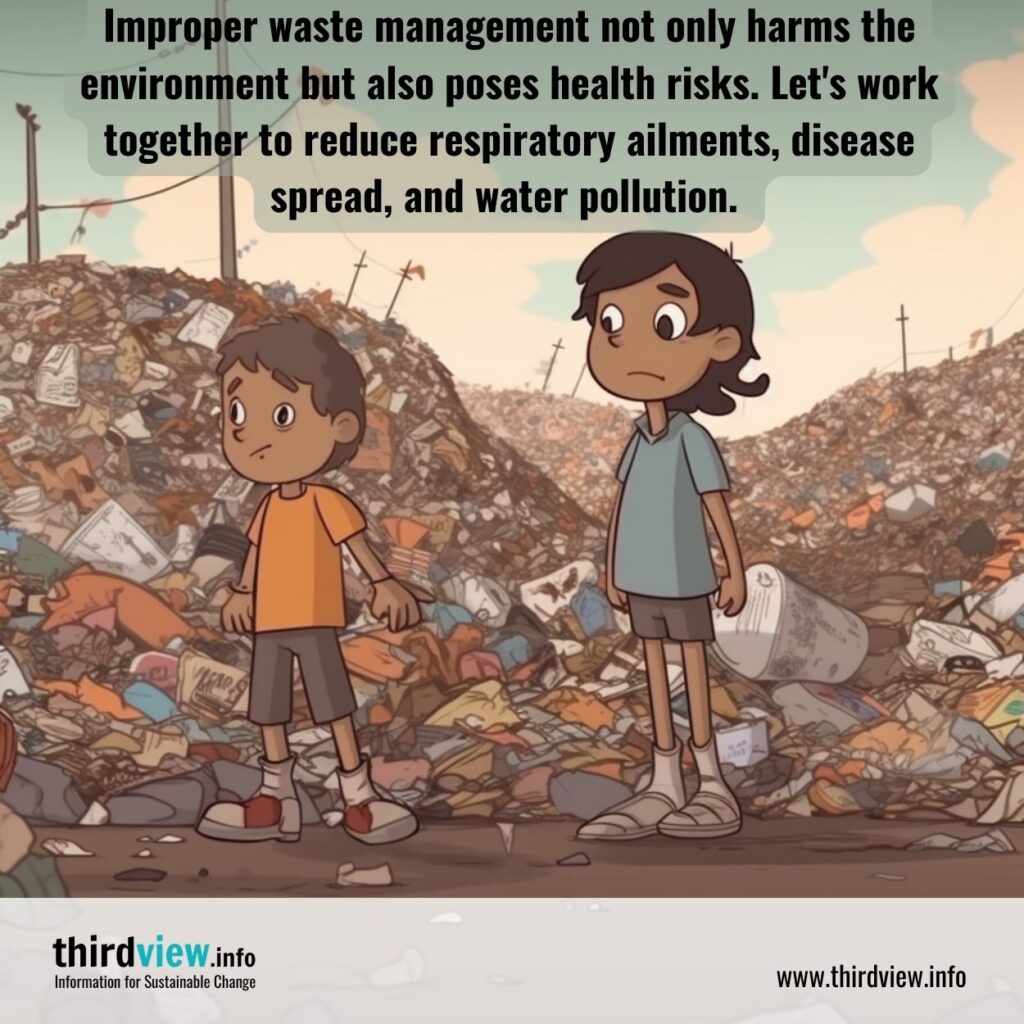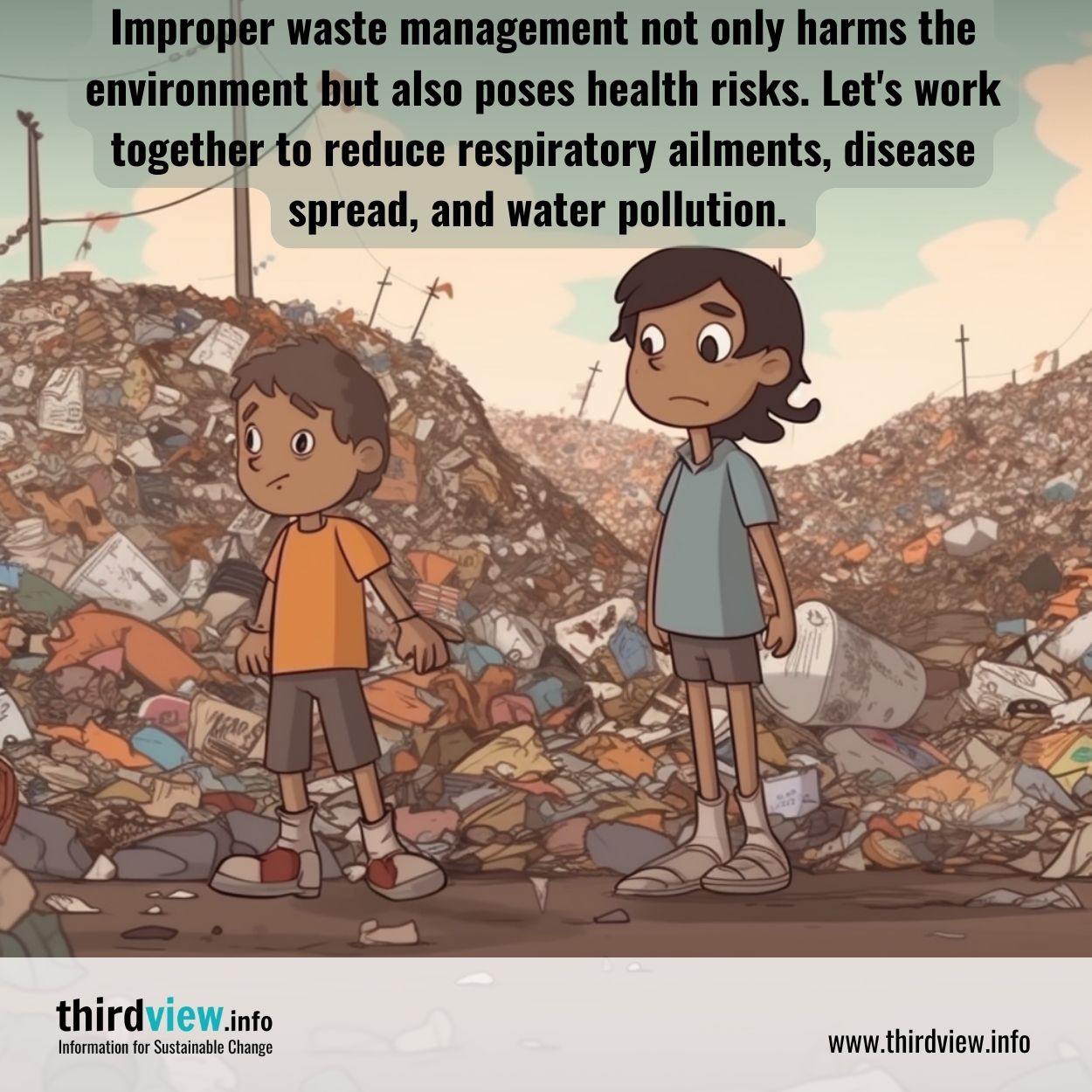It isn’t often that we think about the waste we produce after we toss it away. It’s easy to forget about the banana peel we left behind, the old phone charger that we no longer use, or the food waste that we scrape off our plates. Unfortunately, it’s not just about forgetting – it’s about the dangers that arise when waste isn’t managed effectively. From environmental hazards to public health risks, inadequate waste management can have devastating consequences.
In this blog post, we’ll explore the various dangers of inadequate waste management, the causes, the solutions, and what we can all do to help.
Environmental Hazards
Improper waste management can have serious consequences for the environment. For instance, not properly disposing of waste can lead to the release of hazardous chemicals and pollutants that contaminate our surroundings, leading to soil and water pollution. The result? Damaged ecosystems, biodiversity loss, and climate change. Moreover, waste disposal sites, such as landfills and incineration facilities produce greenhouse gases, which contribute to global warming.
Public Health Risks
Waste management issues pose considerable public health risks. Exposure to hazardous waste can cause a range of health conditions, such as respiratory ailments, skin irritations, and infections. In addition, waste can attract and harbour disease-bearing insects and pests, which can lead to the spread of diseases like dengue fever, malaria, West Nile virus, and Zika. Furthermore, waste pollutes our waterways and oceans, posing a threat to human and animal life.
Causes of Inadequate Waste Management:
Inadequate waste management can occur due to various reasons. Some of the main reasons include inadequate infrastructure, weak legislation, and lack of public awareness. In many cases, municipal authorities may have limited resources, making it challenging to implement effective waste management programs. Also, many developing countries lack the resources to establish reliable waste management infrastructure, leaving residents with few options for safe disposal.
Solutions for Inadequate Waste Management:
So, what can communities do to manage waste efficiently and reduce the negative impact on health and the environment? One solution is to advocate for better waste management infrastructure, such as community recycling programs, composting initiatives, and improved waste treatment technologies. Another approach is to incentivize waste reduction through campaigns focused on reducing waste, encouraging reuse, and promoting eco-friendly lifestyles. For instance, adopting a zero-waste lifestyle can significantly reduce the amount of waste generated in households.
Inadequate waste management is a significant issue that affects everyone globally. The negative impact of improper disposal of waste affects not just the environment but also our health and well-being. Taking proactive action in addressing waste management problems is imperative to promote sustainable and healthy living for all. The first step towards achieving effective waste management is educating ourselves and others on the adverse effects of poor waste management, making lifestyle changes to reduce waste, and advocating for adequate infrastructure and regulations. By working together, we can achieve a cleaner, healthier, and more sustainable future for ourselves and future generations.


